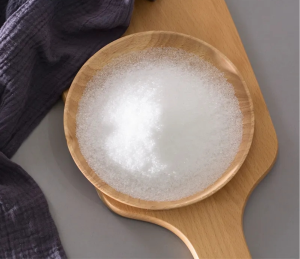Citric acid is a common organic acid widely used in food, beverage, chemical and cosmetics industries. According to its water content, citric acid can be divided into citric acid monohydrate and citric acid anhydrous. There are significant differences in their application fields, chemical properties and physical properties.
It is mainly used in the food and beverage industry as an acidulant, flavoring agent, preservative and freshness-preserving agent. In addition, it can also be used as an antioxidant, plasticizer and detergent in the chemical and cosmetic industries.
In addition to being used in the food and beverage industry, it is mainly used in the chemical manufacturing industry. Many industrial sectors require anhydrous citric acid, including chemical manufacturing, papermaking, aluminum smelting, tungsten smelting, rayon, artificial cotton and soap manufacturing.
It will burn and explode when exposed to open flame, high heat or contact with oxidants, and will be unstable after high temperature.
It has weathering properties in dry air and is easily deliquescent in moist air. When the temperature reaches 175°C, it releases water and carbon dioxide, and its chemical stability is poor.
| nature | Citric acid monohydrate | Anhydrous citric acid |
| relative density | 1.542 | 1.54 |
| melting point | 153℃ | 135-152℃ |
| refractive Index | 1.493-1.509 | – |
| critical crystallization temperature | 36.6℃ | – |
| water Solubility | – | 1630g/L |
| flash point | – | 173.9℃ |
The molecular weight of citric acid monohydrate is 581, while the molecular weight of citric acid anhydrous is 420.
Anhydrous citric acid is widely used in the national economy and is needed by many industrial sectors. For example, in the production of dyes, plastics, pharmaceuticals and organic intermediates, the recycling of old rubber, the production of metallic sodium, the electrolysis of water, the production of inorganic salts, the production of borax, chromium salts, manganates, phosphates, etc., a large amount of anhydrous citric acid is also used.
In summary, there are significant differences between citric acid monohydrate and citric acid anhydrous in terms of application fields, chemical properties and physical properties. The choice of which type of citric acid should be determined based on the specific application needs.

